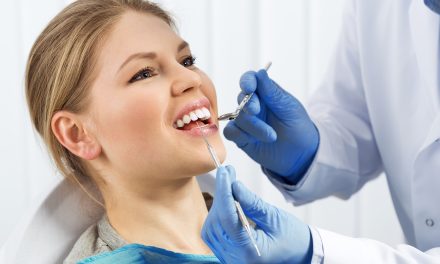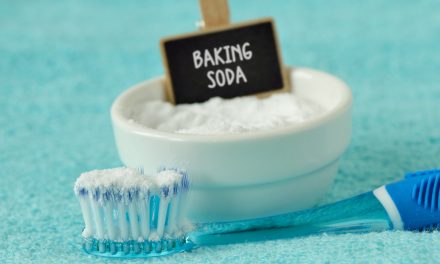Taking care of our teeth goes beyond just brushing and flossing. What we eat plays a big role in keeping our smiles healthy. The food we choose can help or harm our teeth and gums.
A diet rich in nutrients can make our teeth stronger and fight off tooth decay and gum disease. Eating the right foods gives our bodies what they need to build strong teeth and keep our mouths healthy. This includes getting enough calcium, vitamin D, and other key nutrients.
Good food choices can also help keep our mouths clean between brushings. Some foods, like apples and carrots, act like natural toothbrushes. They scrub away plaque as we chew. Other foods, like cheese, can help protect our teeth from acid attacks.
Key Takeaways
- Eating nutrient-rich foods helps build strong teeth and healthy gums.
- Some foods act as natural tooth cleaners between brushings.
- A balanced diet supports overall oral health and fights tooth decay.
Unlocking the Link: Diet and Oral Health
Diet plays a key role in dental health. What we eat affects our teeth and gums in many ways. New research sheds light on how food choices impact oral health.
Historical Perspectives on Diet and Dentistry
Ancient cultures linked diet to tooth health. The Greeks and Romans knew sugar was bad for teeth. In the 1700s, Pierre Fauchard wrote about foods that hurt teeth.
Modern dentistry began to focus on diet in the 1900s. Weston Price studied how native diets affected teeth. He found people who ate natural foods had better teeth.
In the mid-1900s, research showed sugar caused cavities. This led to more focus on diet in dental care. Dentists started to give diet advice to patients.
Recent Scientific Discoveries
New studies reveal more links between food and oral health. Tooth enamel holds clues about early diet. This helps scientists learn about past eating habits.
Research shows some foods can protect teeth. Cheese, nuts, and leafy greens may help prevent cavities. Drinks like green tea might fight gum disease.
The oral microbiome affects overall health. Diet changes this mix of bacteria in the mouth. A healthy diet can lead to a better balance of oral bacteria.
Scientists now look at how diet affects the whole mouth. This includes teeth, gums, and oral tissues. A balanced diet helps keep all parts of the mouth healthy.
Macronutrients for Mighty Molars
Macronutrients play a key role in dental health. Proteins, fats, and carbohydrates each contribute to strong teeth and gums in unique ways.
Optimal Proteins for Periodontal Health
Proteins are crucial for maintaining healthy gums and teeth. They help build and repair oral tissues. Good protein sources include lean meats, fish, eggs, and legumes.
Collagen, a protein found in bone broth and gelatin, supports gum health. It may help reduce gum inflammation and promote healing.
Nutrition affects oral health in many ways. Amino acids from proteins aid in saliva production. This helps protect teeth from decay.
Fats in Focus: Balancing Omega-3 and Omega-6
Fats are important for absorbing fat-soluble vitamins that benefit dental health. Omega-3 fatty acids, found in fish and flaxseeds, may reduce gum inflammation.
A good balance of omega-3 to omega-6 fats is key. Too much omega-6 can increase inflammation. Aim for a ratio of 1:1 to 1:4 omega-3 to omega-6.
Healthy fat sources include:
- Avocados
- Nuts
- Olive oil
- Fatty fish
These fats help the body absorb vitamins A, D, E, and K, which are important for strong teeth and bones.
Carbohydrates: Selecting the Smile-Friendly Types
Not all carbs are bad for teeth. Complex carbohydrates from whole grains, fruits, and vegetables are better choices than simple sugars.
Dietary carbohydrates impact dental health. Sugary foods feed harmful bacteria in the mouth. This leads to acid production and tooth decay.
Fiber-rich carbs like apples and carrots can help clean teeth. They stimulate saliva flow, which neutralizes acids in the mouth.
Choose these carbs for better dental health:
- Whole grains
- Leafy greens
- Non-starchy vegetables
Limit sugary snacks and drinks to protect your teeth from decay.
Pivotal Vitamins for Periodontal Perfection
Certain vitamins play key roles in keeping gums and teeth healthy. These nutrients support strong tooth enamel, promote gum healing, and help fight off harmful bacteria in the mouth.
Vitamin D and Calcium: The Dynamic Duo
Vitamin D and calcium work together to build and maintain strong teeth. Calcium forms the structure of teeth and bones, while vitamin D helps the body absorb and use calcium effectively.
Vitamin D is crucial for oral health. It reduces inflammation in the gums and helps the body fight off bacteria that can lead to tooth decay and gum disease.
Good sources of vitamin D include:
- Sunlight exposure
- Fatty fish like salmon and tuna
- Egg yolks
- Fortified milk and orange juice
Calcium-rich foods include:
- Dairy products
- Leafy green vegetables
- Almonds
- Canned fish with soft bones
Vitamin A: More Than Meets the Eye
Vitamin A supports oral health in several ways. It helps maintain the mucous membranes that line the cheeks and gums, promoting a healthy oral environment.
This vitamin also plays a role in building tooth enamel and helps saliva flow, which naturally cleans teeth and gums.
Foods rich in vitamin A include:
- Sweet potatoes
- Carrots
- Spinach
- Eggs
- Apricots
Vitamin C: The Gums’ Guardian
Vitamin C is essential for gum health. It helps produce collagen, a protein that forms the structure of gums and helps them stay strong and healthy.
This vitamin also acts as an antioxidant, protecting gums from damage caused by harmful bacteria. A lack of vitamin C can lead to bleeding gums and slower wound healing.
Good sources of vitamin C include:
- Citrus fruits
- Strawberries
- Bell peppers
- Broccoli
- Potatoes
Eating a diet rich in these vitamins can help maintain healthy gums and teeth. Regular dental check-ups and good oral hygiene are also key for optimal periodontal health.
Minerals Matter: A Guide to Tooth-Healthy Choices
Certain minerals play a vital role in maintaining strong, healthy teeth. These nutrients help build tooth structure and protect against decay. Let’s explore some key minerals for dental health.
Phosphorus and Magnesium: Supporting Tooth Structure
Phosphorus works with calcium to build strong teeth. It makes up about 85% of tooth mineral content. Good sources include:
- Meat
- Fish
- Eggs
- Dairy products
- Nuts and seeds
Magnesium aids calcium absorption and helps form tooth enamel. Foods high in magnesium are:
- Leafy greens
- Whole grains
- Legumes
- Nuts
Eating these foods regularly provides essential minerals for strong teeth. Aim for a varied diet with plenty of whole foods.
Zinc and Potassium: The Understated Heroes
Zinc helps prevent plaque buildup and tooth decay. It also supports gum health. Zinc-rich foods include:
- Oysters
- Beef
- Pumpkin seeds
- Lentils
Potassium improves bone mineral density. It may help prevent tooth loss as we age. Good sources are:
- Bananas
- Sweet potatoes
- White beans
- Spinach
These minerals work together to keep teeth strong and healthy. Include zinc and potassium-rich foods in your meals to support dental health.
Oral Microbiome: Nourishing Your Dental Flora
Your mouth contains a diverse community of microbes that play a key role in dental health. Feeding these beneficial bacteria through diet can help maintain oral balance and protect your teeth and gums.
Prebiotics: The Foundation of Oral Health
Prebiotics are foods that nourish beneficial oral bacteria. They provide fuel for good microbes to thrive. Fiber-rich foods like apples, carrots, and celery act as natural toothbrushes and feed helpful bacteria.
Leafy greens contain vitamins and minerals that support gum health. They also require more chewing, which increases saliva flow. Saliva helps neutralize acids and remineralize tooth enamel.
Dairy products like yogurt, kefir and aged cheeses provide calcium and phosphorus. These minerals strengthen teeth. Dairy also contains casein, a protein that forms a protective film on enamel.
Green and black teas contain polyphenols. These compounds inhibit the growth of harmful bacteria that cause cavities and gum disease.
Probiotics: Cultivating a Healthy Mouth Environment
Probiotic foods introduce beneficial bacteria directly into the mouth. This helps balance the oral microbiome.
Fermented foods like sauerkraut, kimchi, and kombucha contain live cultures. These good bacteria compete with harmful microbes for space and resources in the mouth.
Probiotic supplements in lozenge or chewable form allow direct contact with oral tissues. Look for products with strains like Lactobacillus reuteri or Streptococcus salivarius K12.
Mouthwashes containing probiotics coat teeth and gums with helpful microbes. This creates an environment where good bacteria can flourish.
Regular consumption of probiotic foods and supplements may reduce bad breath, plaque buildup, and risk of gum disease. They support overall oral health by maintaining microbial balance.
The Role of Antioxidants in Oral Health
Antioxidants play a crucial role in maintaining oral health. These powerful compounds help protect the gums and teeth from damage caused by harmful molecules called free radicals.
A diet rich in antioxidants can support overall oral health. Vitamin C, E, and β-carotene are particularly beneficial for the mouth. These nutrients help fight inflammation and support the body’s natural defense mechanisms.
Fruits and vegetables are excellent sources of antioxidants. Berries, citrus fruits, and leafy greens are especially good choices. Including these foods in one’s diet can help boost oral health naturally.
Antioxidants also play a role in preventing dental diseases. They can help reduce the risk of gum disease and tooth decay by combating harmful bacteria in the mouth.
Some antioxidants, like coenzyme Q10, specifically target gum health. This nutrient helps maintain healthy gum tissue and can aid in preventing periodontal disease.
It’s important to note that while antioxidants are beneficial, they work best as part of a balanced diet. Good oral hygiene practices and regular dental check-ups are still essential for maintaining optimal oral health.
Fermented Foods and Oral pH Balance
Fermented foods play a key role in maintaining a healthy pH balance in the mouth. These foods contain beneficial bacteria that can help neutralize acids and protect teeth from decay.
Some examples of fermented foods that support oral health include:
- Yogurt
- Kefir
- Kombucha
- Sauerkraut
- Kimchi
These foods contain probiotics that contribute to a balanced oral microbiome. A healthy mix of bacteria in the mouth helps keep pH levels in check.
The pH scale ranges from 0 (very acidic) to 14 (very alkaline). The ideal pH for the mouth is around 7, which is neutral. Fermented foods can help maintain this balance.
Eating fermented foods regularly may reduce the risk of tooth decay and gum disease. The probiotics in these foods can crowd out harmful bacteria that produce acid and damage teeth.
It’s important to note that some fermented foods are acidic themselves. Kombucha, for example, has a low pH. It’s best to rinse the mouth with water after consuming acidic fermented foods to protect tooth enamel.
Incorporating a variety of fermented foods into the diet can support overall oral health. These foods work alongside other dental care practices to keep teeth and gums healthy.
Hydration for Oral Health: More Than Just Water
Proper hydration plays a key role in maintaining oral health. While water is essential, other beverages can also impact dental well-being.
Tea and Oral Health: A Symbiotic Relationship
Tea offers unique benefits for oral health. Many teas contain fluoride, which helps protect tooth enamel from decay. Green and black teas have polyphenols that can reduce bacteria in the mouth.
These polyphenols may help prevent bad breath and lower the risk of cavities. Some studies suggest that regular tea drinking might even reduce the risk of oral cancer.
It’s important to note that adding sugar to tea can negate its benefits. Unsweetened tea is the best choice for dental health.
The Deleterious Effects of Sugary and Acidic Drinks
Sugary and acidic drinks can harm teeth in several ways. They feed harmful bacteria in the mouth, leading to tooth decay. These drinks can also erode tooth enamel, making teeth more sensitive and prone to damage.
Sports drinks, often consumed during exercise, can be particularly harmful. They combine sugar and acid, creating a double threat to dental health. Even diet sodas, while sugar-free, contain acids that can damage teeth.
To protect oral health, it’s best to limit these drinks. When consuming them, using a straw can help minimize contact with teeth. Rinsing with water afterward can also help reduce their negative effects.
Strategic Eating Habits for Strong Teeth
Eating habits play a big role in keeping teeth healthy. Good habits can help protect teeth from decay and keep them strong. Bad habits can lead to tooth problems.
Meal Timing and Frequency: Their Effects on Oral pH
Dental caries are linked to how often a person eats sugary foods. Eating sugar too often can harm teeth. It’s better to eat sugary foods with meals instead of as snacks.
The mouth becomes more acidic after eating. This acid can weaken tooth enamel. Waiting at least 2 hours between meals gives the mouth time to balance its pH. This helps protect teeth.
Drinking water after meals can help wash away food particles. It also helps the mouth make more saliva. Saliva protects teeth from decay.
Mindful Munching: The Art of Chewing and Dental Health
Chewing food well is good for teeth and gums. It makes more saliva, which helps clean the mouth. Saliva also has minerals that strengthen teeth.
Eating crunchy fruits and veggies can help clean teeth. Foods like apples, carrots, and celery act like natural toothbrushes. They scrub teeth as a person chews.
Chewing sugar-free gum after meals can also help. It makes more saliva and can remove food bits stuck in teeth. But gum should not replace brushing and flossing.
Functional Foods and Dental Health
Certain foods and ingredients can boost oral health beyond basic nutrition. These natural options offer unique benefits for teeth and gums when included as part of a balanced diet.
Spices and Herbs: Nature’s Toothbrushes
Many common spices and herbs have antimicrobial properties that fight bacteria in the mouth. Cinnamon, for example, contains compounds that reduce plaque and gingivitis.
Cloves have long been used to numb tooth pain. They contain eugenol, which has antiseptic and anti-inflammatory effects.
Mint leaves and parsley can freshen breath naturally. Chewing on these herbs stimulates saliva production, which helps wash away food particles and neutralize acids in the mouth.
Turmeric is known for its anti-inflammatory properties. Studies suggest it may help prevent gum disease when used in mouthwash or toothpaste.
The Surprising Oral Benefits of Fatty Fish
Fatty fish like salmon, mackerel, and sardines are rich in omega-3 fatty acids. These healthy fats can reduce inflammation in the body, including in the gums.
The vitamin D in fatty fish helps the body absorb calcium, which is crucial for strong teeth. Calcium strengthens tooth enamel and helps prevent decay.
Fish also contains phosphorus, another mineral important for dental health. Phosphorus works with calcium to build and maintain strong teeth and bones.
Some studies suggest omega-3s may even help prevent or reduce periodontal disease. Adding fatty fish to your diet 2-3 times a week could boost your oral health.
Planning Your Dietary Journey for Optimum Dental Health
A balanced diet is key for healthy teeth and gums. Meal planning and preparation play a big role in dental health. To start, one should focus on eating whole foods and limiting sugary snacks.
Calcium-rich foods like milk, yogurt, and leafy greens help build strong teeth. Protein sources such as lean meats, fish, and eggs provide nutrients for gum health.
It’s wise to plan meals and snacks ahead of time. This helps avoid unhealthy choices that can harm teeth. Keeping a food diary can also be useful to track eating habits.
Here are some tips for a tooth-friendly diet:
- Eat crunchy fruits and vegetables
- Choose water over sugary drinks
- Limit sticky foods that cling to teeth
- Include dairy products for calcium
- Snack on nuts and seeds for minerals
Chewing sugar-free gum after meals can help clean teeth and boost saliva flow. This aids in washing away food particles and bacteria.
Remember, good nutrition habits take time to form. Small, steady changes often work best for long-term success.
Frequently Asked Questions
Diet plays a big role in dental health. The foods we eat and nutrients we get affect our teeth and gums. Some foods help keep teeth strong, while others can cause decay.
What are the best foods to eat for maintaining strong teeth?
Foods high in calcium and phosphorus help build strong teeth. Dairy products like milk, cheese, and yogurt are great choices. Leafy greens, nuts, and fish also contain these minerals.
Crunchy fruits and veggies like apples and carrots increase saliva flow. This helps wash away food particles and bacteria.
Which vitamins are essential for oral health?
Vitamin C is key for gum health. It helps make collagen, which keeps gums strong. Citrus fruits, berries, and peppers are good sources.
Vitamin D helps the body absorb calcium. This vitamin is found in fatty fish, egg yolks, and fortified foods. The body also makes vitamin D from sunlight.
How does diet impact the overall health of gums?
A balanced diet with lots of vitamins and minerals keeps gums healthy. Foods high in vitamin C and omega-3 fatty acids reduce inflammation in gums.
Drinking plenty of water helps wash away food and bacteria. This prevents plaque buildup on teeth and gums.
What foods should be avoided to prevent tooth decay?
Sugary foods and drinks are the main culprits for tooth decay. Candies, sodas, and baked goods feed harmful bacteria in the mouth.
Sticky foods like dried fruits can also cause problems. They stick to teeth longer, giving bacteria more time to produce acid.
How does sugar consumption affect dental health?
Sugar is bad for teeth. Bacteria in the mouth feed on sugar and make acid. This acid eats away at tooth enamel, causing cavities.
Frequent sugar intake is worse than eating sugar all at once. It gives bacteria more chances to make acid.
What role does calcium play in tooth and gum health?
Calcium is crucial for strong teeth and bones. It helps build and maintain tooth enamel. This mineral also keeps jaw bones strong, which supports teeth.
Calcium-rich foods like dairy products, leafy greens, and fortified foods protect against tooth decay. They also help keep gums healthy.
Conclusion
A healthy diet plays a big role in keeping teeth strong. Eating the right foods can help prevent cavities and gum disease.
Some key tips are to limit sugary snacks and drinks. Choose water instead of soda when possible. Eat plenty of fruits, vegetables, and dairy products.
Nutrition affects tooth development even before teeth come in. Getting enough vitamins and minerals is important for healthy teeth and gums.
Brushing and flossing are still very important. But good food choices can boost oral health too. Small diet changes can make a big difference over time.
Regular dental checkups are also key. A dentist can spot problems early. They can give personalized advice on diet and oral care.
Remember that oral health affects overall health. Taking care of teeth and gums through diet and hygiene helps the whole body stay well.















